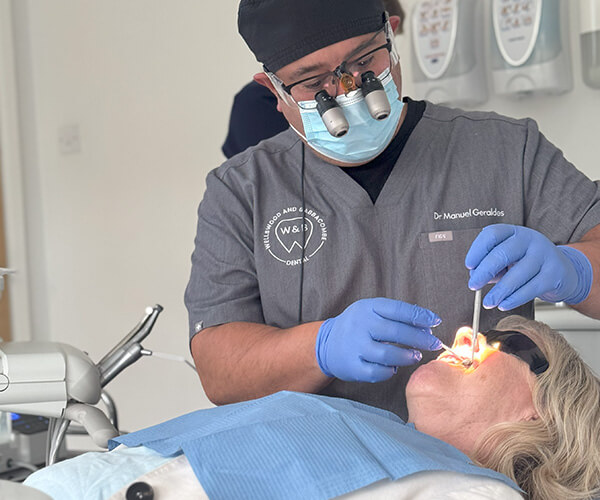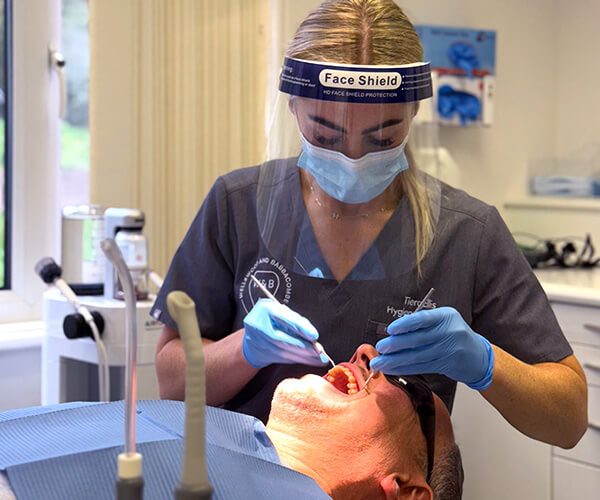Oral Health Assessments



Reduce The Risks
An oral health assessment, also known as a dental examination, is a thorough evaluation of your oral health. This typically includes an examination of the teeth, gums, tongue, and other parts of the mouth, as well as a review of your medical and dental history. The purpose of an oral health assessment is to detect any potential oral health issues and to determine the overall health of your mouth.

Benefits of Oral Health Assessments
Not only do regular visits help to maintain your smile, recently, we have seen how a healthy mouth can also reduce the risk of heart disease, strokes and diabetes.
Early detection
A dental crown can protect a damaged or weak tooth from further decay or breakage.
Personalised treatment planning
Crowns can restore a broken or severely worn down tooth to its normal shape and function.
Professional cleaning
Improve the appearance of a discoloured or misshapen teeth.
Education
A dental crown can provide support for a tooth with a large filling or a dental bridge.
Identification of systemic health issues
An oral health assessment may also help identify underlying systemic health issues such as diabetes, heart disease, and osteoporosis.

Comprehensive Assessments
Our aim is to complete an holistic examination of all areas of mouth, face, head and neck. Where appropriate, our clinicians will use a range of diagnostic tools to fully understand and diagnose potential problems that may arise in the future or require addressing before further damage occurs.
How often should I have an oral health assessment?
It’s recommended to have an oral health assessment at least once a year, but some people may need more frequent check-ups depending on their dental health needs.
What happens during an oral health assessment?
Your dentist will check for cavities, gum disease, and oral cancer, assess your bite and jaw function, take X-rays if needed, and provide advice on maintaining good oral hygiene.
How can I prepare for my oral health assessment?
Brush and floss before your appointment, make a list of any concerns or symptoms, and inform your dentist about any medical conditions or medications that may affect your oral health.
